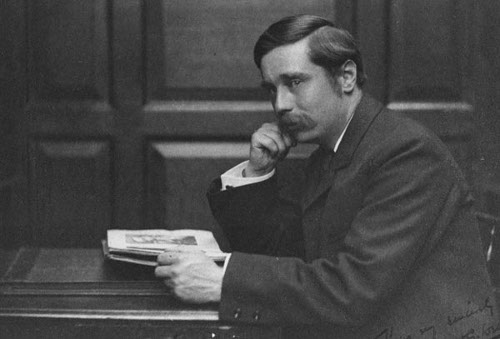
Mr. H.G. Wells
Was composed of cells.
He thought the human race
Was a perfect disgrace.
So wrote Edmund Clerihew Bentley in demonstrating the whimsical biographical verse that he invented. “I never heard who started the practice of referring to this literary form — if that is the word — as a Clerihew,” he wrote, “but it began early, and the name stuck.”
That’s as it should be: In a 1981 collection, Gavin Ewart wrote, “Nobody much except Bentley has ever written really good clerihews.” Samples:
“The moustache of Adolf Hitler
Could hardly be littler,”
Was the thought that kept recurring
To Field-Marshal Goering.
It is curious that Handel
Should always have used a candle.
Men of his stamp
Generally use a lamp.
Although Machiavelli
Was extremely fond of jelly,
He stuck religiously to mince
While he was writing The Prince.
The meaning of the poet Gay
Was always as clear as day,
While that of the poet Blake
Was often practically opaque.
A man in the position
Of the emperor Domitian
Ought to have thought twice
About being a Monster of Vice.
Edgar Allan Poe
Was passionately fond of roe.
He always like to chew some
When writing anything gruesome.
The great Duke of Wellington
Reduced himself to a skellington.
He reached seven stone two,
And then — Waterloo!
